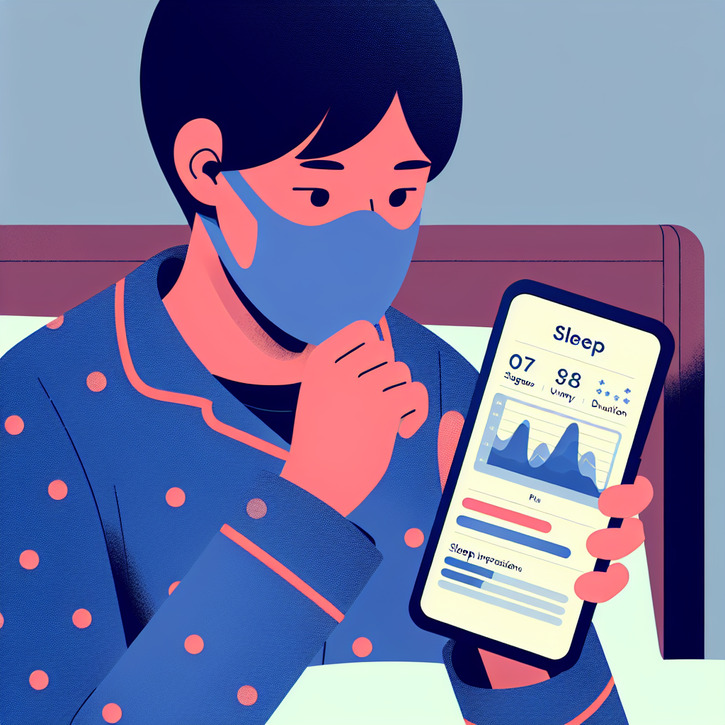7 Must-Know Facts About Sleep Issues That Could Change Everything

Getting to Know Sleep Struggles: Why They’re a Big Deal
We all know how sleep troubles can throw a wrench into our lives, often in ways we might not even notice at first. When our sleep is out of whack, it’s not just about feeling groggy the next day—the ripple effects touch our work, our relationships, and our overall sense of well-being. In this post, we're diving into seven essential insights about sleep issues that might just flip everything you thought you knew about catching quality z’s. With over a decade spent untangling the mysteries of sleep disorders and wellness, I’ve seen firsthand just how complex these challenges can be. So, let’s roll up our sleeves and unpack what sleep issues really mean, why they deserve our attention, and how tackling them can seriously boost your quality of life. Grab a comfy seat, unwind, and let’s explore the real story behind those tossing and turning nights.
So, What Are Sleep Issues Exactly?
At the heart of it, sleep issues cover a whole range of problems that mess with our ability to get a good, deep sleep. Whether it’s trouble dozing off, staying asleep, or experiencing wildly erratic sleep patterns, these disturbances can vary from a minor annoyance to something that completely disrupts your life. Maybe you’ve had an occasional rough night, but for some, the struggle is a constant companion that turns into a chronic challenge. Knowing what counts as a sleep issue is key to taking the right steps toward improvement. While everyone has the occasional sleepless spell, a regular pattern of disruption might signal that it's time to take a closer look—sometimes with a little help from a professional.
Catching the Early Warning Signs
Spotting sleep issues early on can really change the game. Think persistent daytime fatigue, trouble focusing, irritability, or even mood swings that seem to come out of nowhere. You might also start noticing those pesky dark circles under your eyes or feeling exhausted even after what should be a full night of sleep. These signals are like your body’s way of saying, “Hey, something’s not right here!” Recognizing them and addressing them head-on can stop sleep problems from snowballing into bigger health concerns.
The Ripple Effects on Your Daily Life
When sleep problems go unnoticed, they can seep into every part of your day. That sluggish feeling at work? It might actually be a consequence of losing sleep. Or consider those moments when simple tasks suddenly seem like uphill battles. Sleep is the unsung hero behind sharp thinking and emotional balance; when it’s compromised, everyday decisions become tougher, and your stress levels can soar. Over time, this creates a nasty cycle: poor sleep drags down your daytime performance, which then ramps up anxiety, leading to even worse sleep. It’s clear that fighting sleep issues isn’t just about feeling rested—it’s about reclaiming a vibrant, healthy life.
What’s Behind the Sleep Struggles?
There isn’t a one-size-fits-all answer to why sleep issues crop up; they’re as unique as the people experiencing them. Grasping the common triggers can be a real eye-opener, whether it’s your daily habits, the environment around you, or even your emotional state that’s standing in the way of deep, restorative sleep. Pinpointing the cause—be it a lifestyle quirk, an environmental hiccup, or simmering stress—can jumpstart your journey to better sleep. By tackling these triggers directly, you set the stage for long-lasting, effective solutions.
Everyday Habits That Sabotage Your Sleep
Our daily routines hold the power to either nurture deep sleep or completely derail it. Irregular sleep schedules, staring at screens right before bedtime, loading up on caffeine, and even a sedentary lifestyle can all play a role in stirring up sleep issues. It’s all too easy to fall into patterns that work against your body’s natural rhythm—like burning the midnight oil to catch up on work or binge-watching your favorite shows. Over time, the body gets mixed signals about when it’s time to hit the hay. Tweaking these habits is often the first step toward steering your sleep back on track.
How Your Sleeping Environment Plays a Part
You’d be surprised how much your surroundings impact your sleep. Whether it’s a bustling street outside, an overly bright room, or even an uncomfy temperature, the environment can be a major culprit behind sleep disturbances. Creating a calm, inviting sleep space can make all the difference. Think about the quality of your mattress, how your pillows are arranged, the hum of background noise, and even the ergonomic setup of your sleep zone. When one of these factors is off, it all adds up to a night of interrupted rest that leaves you less than refreshed the next day.
Stress and Anxiety: The Usual Suspects
Let’s face it—stress and anxiety are like death to a good night’s sleep in today’s hectic world. When your brain is buzzing with worries about everything from work to personal finances, it’s hard to wind down and slip into a restful sleep. This constant state of alertness means your body never quite gets the chance to enter those rejuvenating sleep stages. While a little stress here and there is normal, chronic anxiety can create a relentless cycle that not only disrupts sleep but also makes it increasingly difficult to break free from the grip of insomnia. Learning to manage stress effectively can be your secret weapon in beating sleep troubles.
How Sleep Issues Hit Your Health
It turns out that lack of sleep isn’t just about feeling wiped out during the day—it can seriously mess with both your mental and physical health. Over time, chronic sleep problems can lead to a host of issues, from a weakened immune system and heart problems, to cognitive decline. It’s not just a minor inconvenience; poor sleep quality can set off a domino effect that escalates health risks. Studies consistently show that those grappling with sleep problems are more prone to various health challenges. Realizing just how deep the impact of sleep issues can be underscores why prioritizing sleep is crucial for a long, healthy life.
Sleep and Mental Health: A Delicate Dance
The link between sleep and mental well-being is crystal clear. Ongoing sleep troubles can pave the way for anxiety, depression, and a host of other mood disorders. Without enough downtime for the brain to recharge, it’s more vulnerable to stress and emotional ups and downs. Many people stuck in the cycle of poor sleep find themselves battling heightened anxiety, creating a vicious loop that’s hard to break. Making sleep a priority can work wonders for mental clarity, emotional resilience, and overall psychological health.
Physical Health Consequences of Poor Sleep
The connection between sleep and physical health is undeniable. When your sleep is disrupted, your body’s natural repair mechanisms slow down, leaving you open to all sorts of health risks—from a dodgy immune system and chronic inflammation to serious conditions like high blood pressure and diabetes. It’s a bit of a domino effect: as your physical health takes a hit, your sleep suffers even more, spiraling into a tough-to-break cycle. Simply put, getting a consistent, quality night’s sleep is one of the best things you can do to protect your long-term health.
The Long Haul: What Happens if You Ignore Sleep Issues
Ignoring those ongoing sleep problems can set you up for a cascade of faults over time. Left unchecked, persistent sleep issues may lead to cognitive decline, diminished productivity, and long-term health issues that could take years to sort out. It’s a bit like ignoring a small leak that eventually turns into a flood: the longer you let it go, the harder it is to fix. Taking proactive steps to address sleep issues early on can pave the way toward a healthier, more balanced life down the road.
Figuring Out What’s Going On: Diagnosing Sleep Problems
The first step in turning things around is really understanding what’s happening with your sleep. Diagnosing sleep issues typically involves a mix of reviewing your medical history, doing physical exams, and sometimes undergoing specialized sleep studies. Diving into this process can pinpoint the exact nature of your sleep disorder and even uncover other health issues that might be lurking in the background. Keep in mind, the goal isn’t to pin blame on yourself—but to learn exactly what your body needs so you and your healthcare provider can craft an effective game plan.
Modern Tools for Tracking Sleep Patterns
Today’s technology offers us some pretty nifty tools for keeping an eye on our sleep. Actigraphy, sleep logs, and wearable trackers have really changed the landscape when it comes to understanding our sleep habits. By logging details about how long and how well you sleep, these gadgets help both you and your doctor get a clear picture of what might be going wrong during the night. Combining these modern tools with clinical evaluations makes it much easier to design targeted interventions that can finally put your sleep on the right track.
Why Sleep Studies Matter
For those grappling with more complex sleep disorders, sleep studies conducted in specialized labs can be a game changer. These studies monitor everything from your brain waves to your heartbeat and breathing patterns throughout the night, offering a level of detail that a regular check-up just can’t match. While spending a night in a sleep lab might feel a bit intimidating, the insights you gain can be invaluable in getting to the bottom of your sleep struggles. Ultimately, these studies pave the way for a diagnosis that leads to a treatment plan tailor-made just for you.
Spotting the Symptoms: What to Look For
Sleep issues can creep up on you in both subtle and more obvious ways. It might start with feeling oddly tired during the day, finding it hard to concentrate, or even dealing with mood swings that confuse you. Some people even experience vivid dreams or episodes of sleep paralysis, which might push you to dismiss these symptoms as just a phase. But often, these signals are your body’s cry for help. Getting to know what these symptoms can mean is a big step in breaking the cycle of poor sleep and making sure you get the support you need.
New and Exciting Paths to Better Sleep
Fortunately, the world of sleep medicine is buzzing with innovative treatments that attack sleep issues from every angle. Advances in both technology and behavioral science mean that there’s now a range of strategies available—no cookie-cutter solutions here. Whether you’re struggling with insomnia, sleep apnea, or another sleep disorder, modern treatments are designed to enhance not just your sleep but your overall well-being. This blend of science and empathy means that the right treatment plan is truly tailored to your unique situation.
Medical Treatments: Beyond the Pill Bottle
When it comes to medical interventions, there are plenty of options to consider—each geared to tackle specific symptoms or underlying issues. From prescription sleep aids to CPAP therapy for sleep apnea, the aim is to help you re-establish a natural sleep rhythm. Often, these medications or therapies are just one piece of a larger puzzle that includes lifestyle tweaks and ongoing monitoring. Working side-by-side with your healthcare provider ensures that your treatment plan is as personalized as possible, addressing every part of your sleep struggles with care and precision.
Behavioral and Therapeutic Approaches
For many, behavioral therapies like cognitive-behavioral therapy for insomnia (CBT-I) prove to be incredibly effective. Rather than just masking the symptoms, these therapeutic strategies help you uncover and change the thought patterns and habits that are stealing your sleep. By learning practical techniques—from relaxation exercises to building a solid sleep hygiene routine—you can gradually set the stage for a lasting transformation. Over time, these changes can help you break free from the cycle of sleepless nights for good.
Trying Alternative Remedies
If conventional treatments aren’t quite doing the trick, you might find relief in alternative remedies. Many turn to meditation, yoga, or even herbal supplements to naturally soothe the mind and ease stress—the usual culprits behind many sleep issues. While these approaches might not work miracles for everyone, they can be a fantastic complement to traditional methods. Embracing alternative strategies helps create a holistic approach to better sleep, empowering you to incorporate self-care into your daily routine in a really meaningful way.
Simple Lifestyle Tweaks for Sleep Success
Sometimes, the key to better sleep lies in those everyday choices you make without even thinking about it. Little adjustments—like fine-tuning your bedtime habits or setting up a cozy, sleep-friendly space—can make a world of difference for your nightly rest. Instead of searching for a miracle cure, think about taking a holistic approach that considers your diet, exercise, and even your mental well-being. These small changes add up, boosting both your energy levels and your overall health. With a few thoughtful lifestyle tweaks, you can regain control over your sleep and, by extension, reclaim your quality of life.






